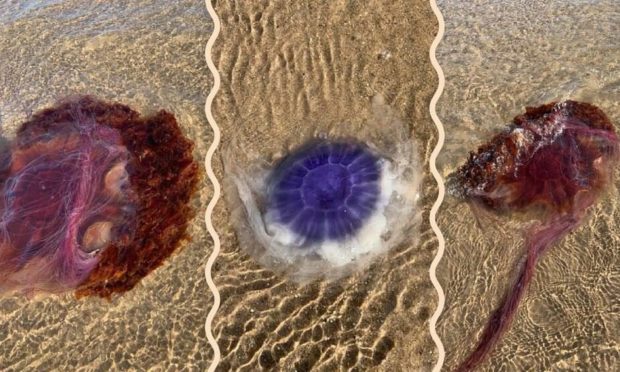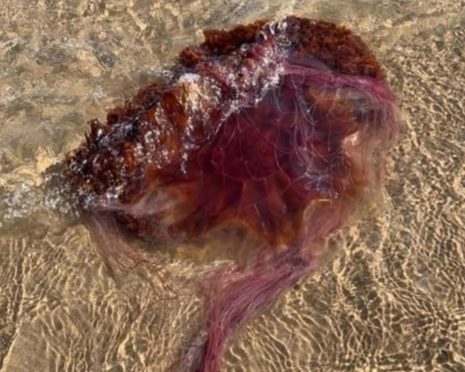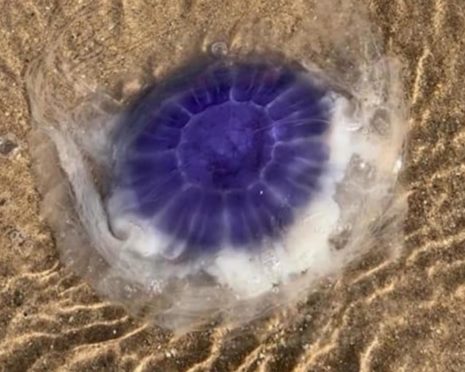Those heading to beaches across Fife to cool off have been warned about smacks of jellyfish that have washed ashore.
Jellyfish are a common sighting on the Kingdom’s sands throughout summer, with regular sightings reported in July each year.
The Lion’s Mane, one of the largest species of jellyfish in the world, has been spotted on several beaches including at Leven.
Pictures taken at Leven beach previously showed two different species of jellyfish.
One of the jellyfish captured in pictures shared by Lesley MacDonald were identified as a Lion’s Mane.
Taking to social media to warn locals of the risks, some have reported stings.
In 2021, Caroline Paton confirmed to The Courier that her son had to be taken to hospital after an encounter with a jellyfish in Fife.
“Parents, be aware of a new jellyfish-type visitor to Fife,” she said.
“Stung my son at Silversands at 6pm and the reaction was immediate and pretty awful.
“Quite delirious and so agitated. In a huge amount of pain burning from head to toe.
“Did all the right things but may last a few days.”
An 11-year-old girl was also hospitalised after being stung by a Lion’s Mane jellyfish at Pettycur Bay in Kinghorn.
Her mum told how the girl’s throat began to tingle before she vomited shortly after arriving home.
Abbie McIntosh was taken to the Victoria Hospital in Kirkcaldy after being left in excruciating pain.
It was only after she received medication that Abbie finally felt well.
Why you see more jellyfish in July
Jellyfish are most active in the warmer summer months, including July and August. They can also be seen as late September and October.
There are thousands of species of jellyfish, but only a few are common in UK waters.
However this is changing, with one marine microbiologist explaining that the Lion’s Mane jellyfish had been unusual in Northern Europe but is more common now with warmer summer weather.
What to do if you’re stung by a jellyfish
Despite what you hear, experts advise that you should not urinate on a jellyfish sting.
Numerous studies have found the myth doesn’t actually work, and could even make the sting worse.
The NHS says that anyone stung by a jellyfish should first ask a lifeguard for help or advice.
They also said the area should be rinsed with seawater and any spines removed with tweezers or a bank card.
“Soak the area in very warm water (as hot as can be tolerated) for at least 30 minutes – use hot flannels or towels if you cannot soak it,” they advise.
Those affected should also be given painkillers like paracetamol and ibuprofen.



Conversation